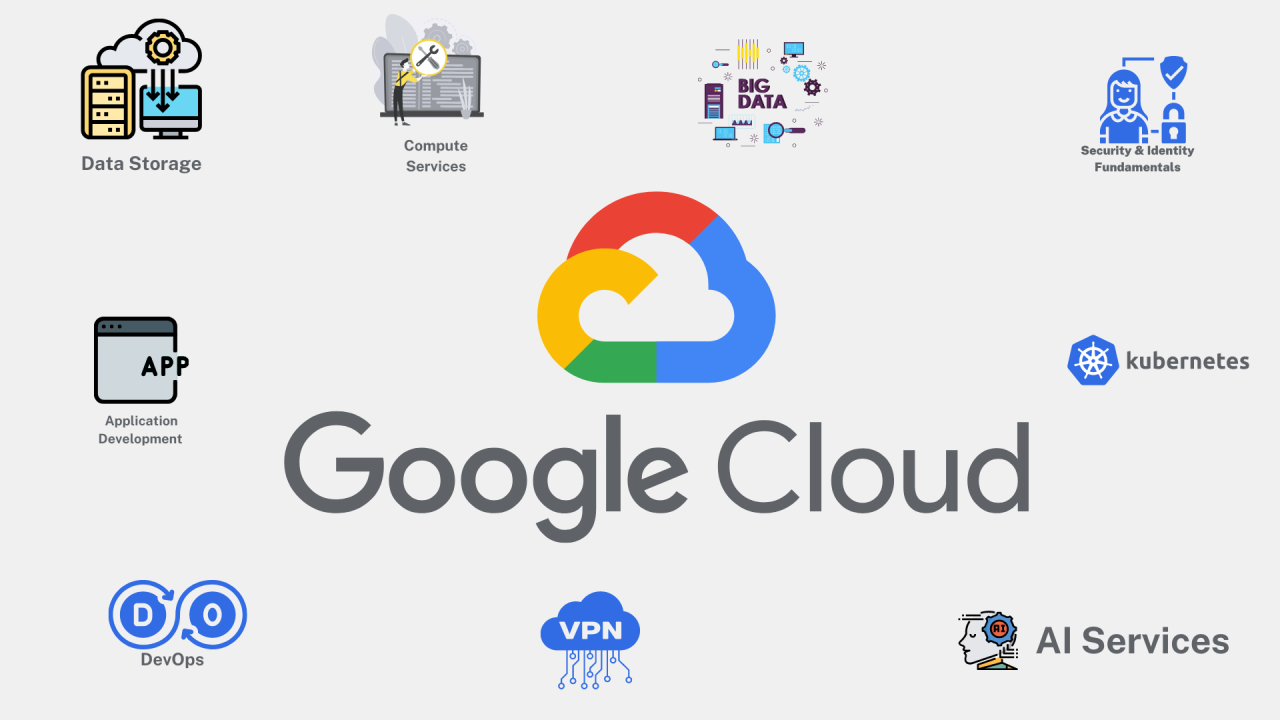The cloud computing landscape in Saudi Arabia is undergoing a dramatic transformation in 2025, driven by the Kingdom’s ambitious Vision 2030 plan and its commitment to becoming a digitally empowered economy. As businesses across sectors—from finance and healthcare to retail and government—seek more agility, scalability, and data security, cloud solutions in Saudi Arabia are quickly becoming a foundational technology.
Cloud adoption has evolved from a niche IT consideration to a strategic business imperative. With major players like Amazon Web Services, Oracle, Microsoft Azure, and STC Cloud investing heavily in local data centers in Riyadh and Jeddah, Saudi companies now have access to world-class infrastructure that complies with strict national regulations.
In this guide, we’ll explore the top 10 cloud providers that are helping Saudi enterprises optimize their operations, scale securely, and stay competitive in an increasingly digital marketplace.
The Rise of Cloud Computing in Saudi Arabia
The landscape of cloud computing in Saudi Arabia is experiencing a significant transformation, driven by the nation's ambitious Vision 2030. This strategic roadmap has catalyzed a surge in the saudi arabia public cloud market, with businesses of all sizes migrating their operations to the cloud. A robust cloud adoption platform Saudi Arabia is emerging, supported by the presence of the top cloud providers in saudi arabia. These providers are not only offering cutting-edge services but are also investing heavily in local infrastructure, ensuring that businesses have access to the tools they need to innovate and compete on a global scale. The government's "Cloud First" policy further accelerates this trend, making cloud adoption a critical component of the Kingdom's digital future.
The Importance of Local Hosting and Data Sovereignty
In response to stringent data protection regulations, the demand for local hosting in KSA has grown exponentially. Businesses are increasingly seeking saudi arabia cloud server hosting solutions that guarantee data sovereignty and compliance with local laws. Having a cloud server in saudi arabia not only addresses these regulatory concerns but also provides lower latency and improved performance for end-users. As a result, the market for the best cloud hosting saudi arabia has become highly competitive, with providers emphasizing their in-country data centers and their ability to offer secure and reliable hosting services. This focus on local infrastructure is a key differentiator for businesses looking to establish a strong digital presence within the Kingdom.
Hybrid Cloud Solutions for Enterprise Transformation
The saudi arabia hybrid cloud market is witnessing remarkable growth as enterprises seek to modernize their IT infrastructure while leveraging existing on-premise investments. The hybrid cloud erp adoption in saudi arabia is a prime example of this trend, with many organizations opting for a hybrid approach to their s/4hana migration in saudi arabia. This allows them to maintain control over sensitive data while taking advantage of the scalability and flexibility of the public cloud. The successful sap s/4hana migration in saudi arabia is often a critical step in a company's digital transformation journey, and hybrid cloud models provide the agility and control necessary for such a complex undertaking.
Why Cloud Adoption Is Booming in Saudi Arabia
Saudi Arabia is rapidly emerging as a regional tech powerhouse, and cloud computing sits at the heart of this transformation. Several factors are fueling the rise of cloud solutions in KSA, making 2025 a critical year for widespread business adoption.
1. Vision 2030 & the National Digital Agenda
The Saudi government’s Vision 2030 roadmap emphasizes innovation, digital infrastructure, and economic diversification. Initiatives like “Smart Government,” “Cloud First Policy,” and e-Government development programs encourage both public and private entities to migrate workloads to the cloud.
2. Surge in Data Localization & Compliance Regulations
Regulatory bodies like the Communications, Space & Technology Commission (CST) and National Cybersecurity Authority (NCA) mandate strict data protection rules. Businesses are increasingly seeking cloud compliance solutions in Saudi Arabia that offer data sovereignty, in-region hosting, and secure cloud services tailored for local laws.
3. Increased Investments in Local Infrastructure
Major cloud providers such as Oracle (Riyadh), Azure (Jeddah), and STC Cloud have established or expanded Saudi-based data centers, reducing latency, improving speed, and meeting legal hosting requirements. These investments have made it easier for businesses to embrace hybrid cloud platforms and implement multi-cloud strategies effectively.
4. Support for Digital Transformation Across Industries
From fintech startups to government entities, digital transformation efforts are accelerating. Cloud technology enables on-demand scalability, real-time analytics, AI capabilities, and cost-efficient operations, empowering Saudi organizations to stay agile and innovative.
5. Competitive Advantage & Global Integration
Cloud adoption is also a competitive necessity. Businesses that invest in enterprise cloud solutions can integrate globally, support remote work, deploy faster, and adapt more easily to shifting market demands—especially in a rapidly evolving digital economy.
Top 10 Cloud Providers for Saudi Businesses in 2025
1. STC Cloud

Overview:
STC Cloud, backed by the Saudi Telecom Company, is the leading cloud solutions provider in Saudi Arabia that’s entirely built and hosted within the Kingdom. It aligns perfectly with local compliance regulations and offers unmatched Arabic language support across its services.
Key Features:
- Fully sovereign cloud hosting with Riyadh-based data centers
- Virtual servers, Kubernetes, databases, storage, and backup
- High-level integration with Saudi government APIs
- 24/7 bilingual (Arabic-English) support
- Seamless scaling for SMEs and large enterprises
Best For:
Public sector agencies, regulated industries (healthcare, banking), and enterprises requiring strict data residency compliance.
2. Oracle Cloud – Riyadh Region

Overview:
As one of the first global tech giants to launch a dedicated Riyadh cloud region, Oracle is a trusted partner for enterprises looking to adopt hybrid cloud platforms. The Riyadh region supports large-scale enterprise SaaS and PaaS deployments with ZATCA-compliant infrastructure.
Key Features:
- IaaS, PaaS, and SaaS offerings with local data residency
- Deep integrations with Oracle Fusion ERP & HCM
- AI and ML-enabled analytics
- Built-in security and compliance dashboards
- Support for regulated workloads in finance and public sectors
Best For:
Large enterprises running Oracle-based applications, or organizations seeking to modernize legacy ERP systems within a secure Saudi-hosted environment.
3. Google Cloud (via Aramco JV – Riyadh Region)

Overview:
Google Cloud officially entered the Saudi market through a joint venture with Aramco, launching its Riyadh data center in 2024. Known for its advanced AI, analytics, and compute capabilities, it’s a favorite among data-driven organizations and developers.
Key Features:
- In-country hosting via Riyadh region
- AI/ML toolsets like Vertex AI and BigQuery
- High availability and autoscaling
- Secure Identity and Access Management (IAM)
- Advanced APIs for Arabic NLP, speech-to-text, and vision
Best For:
Startups, fintechs, and enterprises that require AI-powered applications, analytics dashboards, and cloud-native DevOps environments.
4. Amazon Web Services (AWS) – Bahrain Region

Overview:
While AWS doesn’t yet have a data center inside Saudi Arabia, its Middle East (Bahrain) region offers low-latency access and strong compliance for Saudi users. With Arabic console options and robust global features, it remains a top choice for companies pursuing a multi-cloud strategy.
Key Features:
- Access to 200+ cloud services (compute, storage, ML, databases)
- Integration with CDN edge locations in KSA for performance
- Arabic language interface and documentation
- Strong identity, encryption, and access control tools
- Proven scalability for both startups and enterprises
Best For:
Tech startups, media platforms, and developers needing elastic compute, global scalability, and diverse IaaS/PaaS options without sacrificing performance.
5. Microsoft Azure – Jeddah Region

Overview:
Azure’s Saudi cloud region in Jeddah, launched in partnership with the Ministry of Communications and Information Technology, ensures full data residency compliance and is widely used by both public and private sector organizations.
Key Features:
- In-Kingdom data centers with full ZATCA and CST compliance
- Native integrations with Microsoft 365 and Dynamics 365
- Advanced security, backup, and disaster recovery tools
- Support for Linux and Windows virtual machines
- Centralized policy and governance tools
Best For:
Enterprises using Microsoft software stacks, government contractors, and businesses requiring high-compliance SaaS and hybrid cloud environments.
6. Alibaba Cloud – MENA Expansion
Overview:
Alibaba Cloud is rapidly gaining ground in Saudi Arabia, particularly among eCommerce, logistics, and media companies. It’s investing in infrastructure across the GCC and provides cost-effective solutions that appeal to startups and price-sensitive sectors.
Key Features:
- AI-based content delivery networks (CDN)
- Elastic compute service (ECS) and cloud database support
- Security services for DDoS protection and compliance
- Arabic SDKs and language processing support
- High availability in MENA with multi-region redundancy
Best For:
eCommerce platforms, logistics tech companies, and SaaS providers focused on Arabic localization and cost efficiency.
7. SAP Cloud Platform – KSA Deployment
Overview:
SAP’s cloud ecosystem has become a cornerstone for many Saudi companies running enterprise resource planning (ERP), particularly in the public sector. With strong data localization and direct deployment capabilities in KSA, it supports mission-critical business functions on the cloud.
Key Features:
- Integration with SAP S/4HANA and SAP Business One
- Cloud ERP, HR, finance, and analytics modules
- Full compliance with Saudi data protection mandates
- On-premise to cloud migration tools
- Industry-specific solutions for oil & gas, logistics, and utilities
Best For:
Large enterprises and ministries needing digitally transformed ERP systems, and organizations already using SAP software locally.
8. IBM Cloud
Overview:
IBM Cloud is well-known in Saudi Arabia for its AI, blockchain, and secure cloud environment offerings. Though it lacks a KSA-based data center, IBM partners with local entities to provide custom deployments, often in hybrid or private cloud formats.
Key Features:
- Full-stack enterprise cloud with containerized apps
- IBM Watson for AI and data science workflows
- Edge computing and blockchain-as-a-service
- Private cloud deployments with on-prem integration
- Strong presence in regulated industries like finance and telecom
Best For:
Heavily regulated industries, R&D-driven firms, and businesses that need AI-integrated, private cloud platforms.
9. Kamatera – Global Infrastructure with MENA Focus
Overview:
Kamatera is a global cloud infrastructure provider offering cost-effective virtual servers and cloud components, with growing popularity among Saudi startups and small businesses due to its pricing and flexibility.
Key Features:
- Ultra-fast server deployment in under a minute
- Customizable CPU, RAM, and storage
- Transparent hourly or monthly pricing
- Simple control panel and REST API access
- Middle East data centers with acceptable latency in KSA
Best For:
Tech startups, small SaaS providers, and developers who need a simple and scalable alternative to big-name providers.
10. Solutions by STC & Huawei Cloud (SCAI Partnership)
Overview:
This Saudi-Chinese cloud collaboration through SCAI (Saudi Company for Artificial Intelligence) and Solutions by STC is creating an indigenous sovereign cloud infrastructure. It’s fully aligned with Vision 2030 and aims to provide secure, government-grade cloud environments.
Key Features:
- Fully sovereign cloud stack hosted in KSA
- Arabic-first interfaces and NLP capabilities
- AI, big data, and cybersecurity integration
- Smart city and IoT compatibility
- Tailored to meet Saudi public sector requirements
Best For:
Public sector institutions, mega-projects (like NEOM), and national-level platforms requiring sovereign, compliant cloud environments.
Managed Cloud Services and Specialized Solutions
As the cloud market matures, the role of a managed cloud service provider in Saudi Arabia is becoming increasingly vital. These providers offer specialized expertise and support, helping businesses to navigate the complexities of cloud adoption and management. A managed cloud service provider in ksa can offer a wide range of services, from infrastructure management to security and compliance. For businesses using Microsoft's cloud platform, managed azure ksa services provide tailored support and optimization. Furthermore, the cost of devops services in Saudi Arabia is becoming a key consideration for businesses looking to accelerate their software development and deployment cycles, with managed service providers offering cost-effective solutions.
The Future of Cloud Innovation in the Kingdom
The future of cloud innovation in Saudi Arabia is bright, with significant growth expected in specialized sectors. The Saudi Arabia healthcare cloud computing market is poised for rapid expansion as healthcare providers adopt cloud-based solutions for electronic health records, telemedicine, and medical imaging. Similarly, the Saudi Arabia telecom cloud market is being transformed by the rollout of 5G and the increasing demand for cloud-native network functions. Emerging technologies such as blockchain and cloud solutions in ksa are also gaining traction, offering new possibilities for secure and transparent transactions. The development of advanced datalake solutions in saudi arabia and the proliferation of saas applications and services in saudi arabia will further fuel innovation and drive the Kingdom's digital economy forward.
Conclusion
The Saudi Arabian cloud market is thriving in 2025, with robust infrastructure, government support, and a wide selection of global and local providers. Whether you're an SME, an enterprise, or a government agency, adopting the right cloud solution in Saudi Arabia can elevate your scalability, security, and digital competitiveness.
As Vision 2030 accelerates national digitization, businesses should prioritize cloud partners that offer data residency, Arabic localization, hybrid deployments, and compliance with Saudi regulations.
Frequently Asked Questions (FAQs)
1. What is the best cloud solution for businesses in Saudi Arabia?
The best cloud solution depends on your business size and needs. For government and regulated sectors, STC Cloud and Microsoft Azure Jeddah are ideal due to local hosting and compliance. For AI-driven and scalable environments, Google Cloud Riyadh and AWS Bahrain offer excellent performance.
2. Is cloud hosting legal and safe in Saudi Arabia?
Yes. Cloud hosting is legal and regulated under frameworks from the Communications, Space & Technology Commission (CST) and the National Cybersecurity Authority (NCA). Saudi-compliant cloud providers must ensure data residency, encryption, and access control.
3. Which cloud providers offer data centers in Saudi Arabia?
As of 2025, STC Cloud, Oracle (Riyadh Region), and Microsoft Azure (Jeddah) have active data centers within the Kingdom. Google Cloud and Huawei Cloud operate through local partnerships with Aramco and SCAI, respectively.
4. Can Saudi startups afford cloud solutions?
Yes. Many cloud platforms like Kamatera, Alibaba Cloud, and even AWS offer pay-as-you-go models and free tiers that are budget-friendly for startups. These services scale as your needs grow.
5. What’s the difference between hybrid, public, and private cloud in KSA?
- Public cloud (e.g., AWS, Google Cloud) offers scalable, shared infrastructure.
- Private cloud (e.g., IBM Cloud, STC private deployments) provides isolated resources for higher security.
- Hybrid cloud (e.g., Oracle, Azure) combines both for flexibility and compliance.
6. Is cloud migration supported in Saudi Arabia?
Yes. Most providers offer cloud migration services tailored to Saudi businesses, including tools for data transfer, application modernization, and compliance auditing.
7. Which cloud solutions support Arabic language and localization?
STC Cloud, Alibaba Cloud, and Solutions by STC with Huawei offer strong Arabic support, including interfaces, SDKs, and NLP capabilities. Global providers like AWS and Google Cloud also support Arabic in their documentation and APIs.



